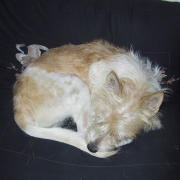
Main Page About the Author What Readers say Dog Discussions Forum Introduction Label Information 101 Identifying better products Ingredients to avoid Product List Organic Dog Food Grain Free Dog Food Vegetarian & Vegan Dog Food Meat vs. Meat Meal
 Choosing the right food
Feeding Puppies
Feeding Senior Dogs
Canine Obesity
Is too much protein harmful?
Grading kibble - easily?
"Five Star Foods"
Questions on Diet
Myths about Feeding
The Yuck Factor
Where the money goes
Natural Supplementation
Menadione (Vitamin K3)
Nutrient Requirements
Links & Resources
Nutrient Overview
Water
Protein
Fat
Carbohydrates
Fiber
Vitamins
Minerals
Essential Fatty Acids
Probiotics
Choosing the right food
Feeding Puppies
Feeding Senior Dogs
Canine Obesity
Is too much protein harmful?
Grading kibble - easily?
"Five Star Foods"
Questions on Diet
Myths about Feeding
The Yuck Factor
Where the money goes
Natural Supplementation
Menadione (Vitamin K3)
Nutrient Requirements
Links & Resources
Nutrient Overview
Water
Protein
Fat
Carbohydrates
Fiber
Vitamins
Minerals
Essential Fatty Acids
Probiotics

Fats
Most types of edible fats are made up of triglycerides, which is a group of three fatty acids. Fatty acids are classified by the length of their carbon chain, absence or presence (and number) of double bonds, position of bonds on the carbon chain and by their melting point.
- Fats without double bonds are called saturated fats and are generally solid at room temperature.
- Fats containing fatty acid chains with a double bond are called unsaturated fats. These may vary from only one double bond in the fatty acid molecule (monounsaturated) to many double bonds (polyunsaturated) and are usually liquid at room temperature.
Fats are highly digestible, very palatable, and are an energy dense nutritional ingredient. Unlike humans, dogs don't suffer from various diseases related to high fat intake - they metabolize fat the way humans metabolize carbohydrates. Since fats provide 2 1/4 times the amount of calories per gram compared to proteins or carbohydrates, it is not a good idea to feed excessive amounts to less active animals, but restricting consumption too much (and often for the wrong reasons!) or providing poor quality types of fat will lead to various problems - a coarse, dull coat and dry, itchy skin often being the most obvious ones. The dog's body will always utilize fat to convert into energy before protein or carbohydrates.
Fat is also important for reproductive efficiency, kidney function and the absorption of the fat soluble vitamins, A, D, E, and K. As a less well known fact, it also serves as a metabolic source of water, so a hard working dog is less likely to get dehydrated when fed a diet higher in fat. Fat metabolism produces 107g of water for every 100 grams of fat. Protein produces 40g water/100g, and carbohydrates produce 55g water/100g.
The aspect of essential fatty acids is discussed in a separate article.